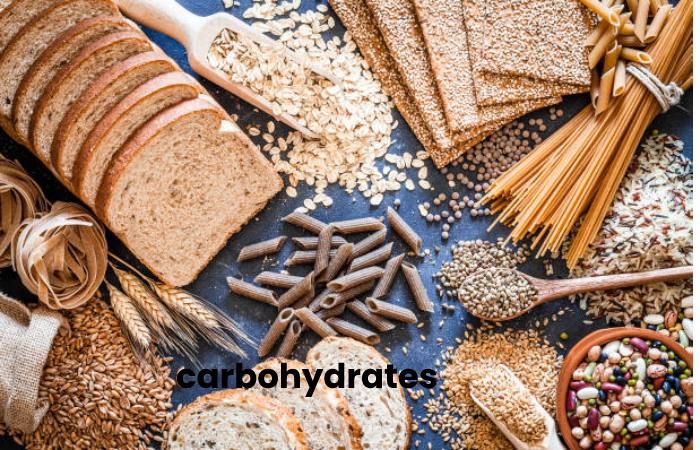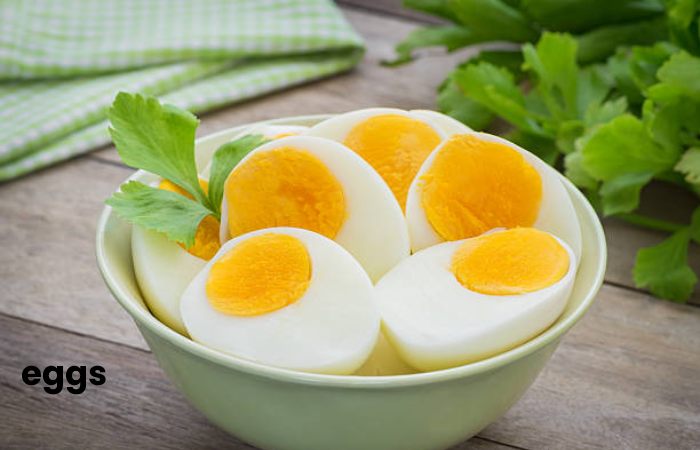Muscle Building Diet – A healthy diet is essential to stay healthy and fit! Similarly, intensive training with the Training app requires a healthy and suitable diet to replenish energy and obtain the best possible results.
Table of Contents
Muscle Building Diet – How To Grow Your Muscles
It is not enough to train hard to gain muscle. Bodybuilding results are the result of four factors:
- Painful sessions
- A suitable diet
- Respect for recovery and hours of sleep
- Your motivation
I will speak to you about this part of nutrition since it is, therefore, one of the pillars of the success of your bodybuilding program. Contrary to popular belief, the muscle does not develop during sessions but during rest phases! Too many practitioners lose interest in food, which is why they are unable to increase their muscle mass (despite sometimes relentless training).
Whether your goal is to gain muscle, gain weight or lose fat, it is essential to master the basics of nutrition.
The Basics Of Nutrition For Gaining Muscle
Whether you do weight training indoors, at home or outdoors like a street workout, your body will need and consume more energy.
The principle is: Training hard will generate micro-injuries to your muscle fibres. Therefore, you will have to repair the damage by nourishing your muscles to create more extensive and numerous muscle fibres.
When you want to progress in bodybuilding, you often use nutritional supplements whose targeted action will allow you to optimize the work of the workouts. Depending on your goals, you have to find the proper dosage in the intake of:
- proteins,
- lipids,
- carbohydrates
The correct ratio for an average person without bodybuilding goals is around 30% protein, 50% carbs, and 20% fat. This percentage is to be understood in caloric intake and not in weight.
The Main Sources Of Macronutrients In Our Diet
The Proteins
Proteins are undoubtedly the most well-known nutrient in bodybuilding because they are involved in the (re)construction of the body.
Protein is largely found in animal products such as meat, fish, eggs and dairy products.
Legumes, nuts and seeds are also good sources of protein
Carbohydrates
Carbohydrates have a vital energy role. In terms of Glycemic Index (GI), carbohydrates can be classified into three categories:
- High GI carbohydrates: sugar, honey, dates, baguette, fried potato, etc.
- Medium GI carbohydrates: banana, orange juice, white bread, white rice, pizza, pastry, etc.
- Low GI carbohydrates: fructose, apple, cereal bread, pasta, soy, milk, etc.
Low GI carbohydrates are to be favoured in endurance sports because they are assimilated slowly and gradually by the body.
High GI carbohydrates are preferred during intense efforts because they quickly provide energy.
Lipids
Lipids are fats. They have a bad reputation but are essential to good health. Foods contain different types of fatty acids that each have their qualities and defects. Lipids are made up of saturated or unsaturated fatty acids. Thus, depending on the type and amount of fatty acids consumed, the effects will be different on your health.
- Saturated fatty acids – animal fat, dairy products, etc.
- Unsaturated fatty acids: fatty fish, vegetable oils, etc.
How Many Meals Should I Take Each Day?
Muscle development is best stimulated if the body is continuously supplied with adequate nutrients. Therefore, it is better to absorb your protein quota and your calorie intake in several meals spread over the day, rather than respecting the traditional pattern of 3 meals a day (breakfast, lunch, dinner).
In general, we recommend eating about every 3-4 hours.
If there is a time to absorb proteins, it is immediately after your session. The protein shaker does the trick and will give you everything you need in one go. It will be your post-workout reward.
Hydration And Muscle Building Diet
Hydration is part of the diet. It is a pillar that should not be neglected to avoid injuries in particular.
The primary metabolism requires drinking at least 1L of water per day. When you do strength training, this number naturally increases. Therefore, it is essential to drink enough before, during, and after the sessions—no need to wait for thirst. Drinking should be an actual ritual.
Between exercises, it is more advisable to drink small amounts often than once a significant amount.
Rich Foods In Muscle Building Diet
Eggs
The egg is truly the food par excellence for gaining muscle mass! A chicken egg delivers about 6 g of protein. Moreover, it’s biological value is close to 100. Two boiled eggs are a perfect snack example after a weight training session.
The Quinoa
Quinoa is an excellent food to satiate athletes who are dedicated to bodybuilding. 100 g of quinoa contains 15 g of vegetable protein. In addition, these seeds are particularly rich in magnesium (275 mg), a mineral that plays a vital role in muscle contraction.
Ginger
Ginger strengthens the immune system and improves the blood circulation of the muscles ( and therefore helps fight against muscle pain! ), and facilitates the elimination of lactic acid in the muscle tissues. This Asian root also enables you to recover from being fit for every workout.
Cottage Cheese
Cottage cheese protein pancakes are great for breakfast, especially when working out. This dairy product is less in calories and provides high-quality protein and carbohydrates. Additionally, cottage cheese contains the essential amino acid tryptophan. It is responsible for a good night’s sleep, crucial for those who want to perform.
Coffee – Muscle Building Diet
How about a cup of coffee before sports? Caffeine increases blood pressure and heart rate, which aids in optimizing training abilities. But don’t overdo it! Before training, an espresso is recommended, but do not add milk or sugar!
Blueberries
Small but mighty! Blueberries are low in calories: 100 g provides about 40 kcal. In addition, these purple berries are antioxidants: they fight against free radicals in the body, which is particularly important for more performance in training. They are delicious in a smoothie or mixed with rolled oats or plain or soy yoghurt.
Nuts
Nuts and seeds are crucial foods for building muscle. They are rich in protein and fat. Almonds are particularly rich in unsaturated fatty acids.

